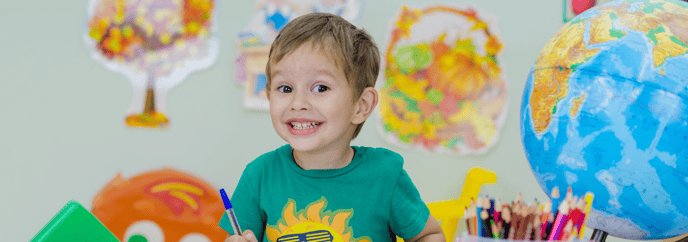Why Positive Encouragement?
What do we mean when we say ‘we believe in positive encouragement’?
“I don't believe you have to be better than everybody else. I believe you have to be better than you ever thought you could be.”
- Ken Venturi | American professional golfer and golf broadcaster
In a similar way, our team at Awards Plus® believes in our awards and recognition solutions to encourage everyone to learn, to put effort in, to reward their effort and to nurture the belief that they are better than they ever thought they could be.
Several studies have shown that the positive encouragement approach, also often referred to as positive reinforcement, can foster a productive environment in which to work and learn, promoting positive interpersonal relationships through creating communication.
"You may also find that positive reinforcements act as a useful communication tool between school and home. A sticker can often encourage a parent to ask a child about their day. The process is also about the opportunity to reinforce the team around the child, which is so crucial to long-term change."
- Lawrence, T 2017 | Assistant headteacher and specialist leader of education in social, emotional and mental health at Danemill Primary School in Leicester.
The team at Awards Plus® come to work to help you create smiles through positive encouragement.
Positive encouragement is a sustainable method to assist with achieving desired behavioural outcomes. Even the classic and often debated Participation Ribbon has a place in a powerful positive encouragement environment.
Why?
If the participant volunteered to take part they had to commit to something, put the effort in, be confident, focussed and take a positive risk. They serve to reward quality completion for what they participated in.
"...The [participation] ribbon was symbolic of a season well played, of giving up three days a week to practice and play games, of effort and sweat and injuries. It wasn’t a ribbon, as Armour puts it, “just for being you.” The ribbon said to them, “Job well done. We know it took a lot of work and we’re proud of you regardless of how high you finished.”
- Rev. Yoshihara, C.
When positive encouragement is implemented appropriately, with thoughtful consideration for your context, it encourages learning, effort and a belief that they can be better than they ever thought they could be. This is why we are always excited to innovate and design solutions to make positive encouragement easy for you!
We believe in positive encouragement!

References:
Akin-Little, A & Little, SG 2019, ‘Effect of extrinsic reinforcement on “intrinsic” motivation: Separating fact from fiction’, in Behavioral interventions in schools: Evidence-based positive strategies., 2nd ed., Applying psychology in the schools book series, American Psychological Association, Washington, DC, pp. 113–132, viewed 7 April 2019, <https://search-ebscohost-com.ezproxy.uow.edu.au/login.aspx?direct=true&db=pzh&AN=2019-11201-007&site=eds-live>.
Akin-Little, KA, Eckert, TL, Lovett, BJ & Little, SG 2004, ‘Extrinsic Reinforcement in the Classroom: Bribery or Best Practice’, School Psychology Review, vol. 33, no. 3, pp. 344–662, viewed 8 April 2019, <https://search-ebscohost-com.ezproxy.uow.edu.au/login.aspx?direct=true&db=pbh&AN=14694439&site=eds-live>.
Fallon, LM, Collier-Meek, MA, Kurtz, KD & Eckert, T 2019, ‘Feasible Coaching Supports to Promote Teachers’ Classroom Management in High-Need Settings: An Experimental Single Case Design Study’, School Psychology Review, vol. 48, no. 1, p. 3, viewed 8 April 2019, <https://search-ebscohost-com.ezproxy.uow.edu.au/login.aspx?direct=true&db=f6h&AN=135610543&site=eds-live>.
Lawrence, T 2017, 'How should I use positive reinforcement within my classroom?', March 10, The Times Educational Supplement, no. 5239.
Schonewille, J, Martin, J and Winne, P H 1978, 'A Comparison of Punishment and Positive Reinforcement Group Contingencies in the Modification of Inappropriate Classroom Behaviors', Canadian Journal of Education / Revue canadienne de l'éducation, Vol. 3, No. 3, pp. 21-36, viewed 05 Apr 2019, <https://www.jstor.org/stable/1494497>.
Yoshihara, C n.d., 'We Should Be Handing Out More Participation Trophies, Not Less', Babble, Viewed 04 Apr 2019, <https://www.babble.com/parenting/we-should-be-handing-out-more-participation-trophies-not-less/>.